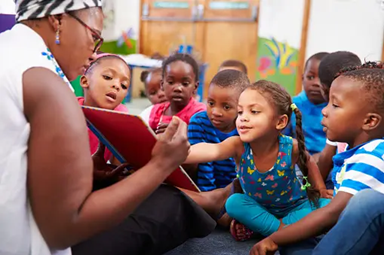Wisconsin governor signs bill overhauling elementary reading education – By Harm Venhuisen, Associated Press
Wisconsin Gov. Tony Evers signed a bill into law Wednesday overhauling the way reading is taught in the state.
The Republican-authored bill is meant to improve sagging reading scores and emphasizes phonics, the relationship between sounds and letters, over memorization. It also requires more frequent reading tests and employs reading coaches to help struggling students.
“We have to ensure our kids have the reading and literacy tools and skills to be successful both in and out of the classroom,” Evers said in a statement. “This bill, modeled after initiatives that have been successful in other states and fine-tuned with significant changes throughout the legislative process, is a step in the right direction.”
Evers, a Democrat, and the state Department of Public Instruction initially opposed the bill over a requirement that low-scoring third-graders repeat reading classes. That measure was changed to put low-scoring students in a remedial program with mandatory summer reading courses.

New State Education Laws Impact Bullying Notification, Threat Assessment Teams – By Ashlyn Campbell, The Daily News Record
Four new education laws went into effect across the Commonwealth on July 1, including lowering the amount of time schools have to notify families about bullying incidents on campus and increasing the duties of university threat assessment teams.
Schools will now be required to notify parents within 24 hours if an alleged bullying incident occurs. Changes to the law lowered the time schools have to inform parents from five school days to within 24 hours of learning of the incident.
Doug Alderfer, the Rockingham County assistant superintendent of leadership and administration, said the changes to the law will be interesting for Rockingham County Public Schools not because of the new timeline but because of the definition of bullying.
“Bullying is kind of a hot topic issue, and the terminology is a bit ambiguous, right? So there is a definition in our policy, but even that definition is up to interpretation,” Alderfer said. “So what one person maybe would consider to be a bullying situation, another person would consider maybe just an interpersonal conflict between two individuals.”
Alderfer said the school division will be working this summer to prepare guidance for teachers and administrators on how bullying is defined and in which situations parents need to be contacted.

MISSOURI MAKES ONE OF LARGEST INVESTMENTS IN EARLY CHILDHOOD EDUCATION – By Alisa Nelson, Missourinet
Missouri’s prekindergarten and childcare systems are getting a $160 million boost in the new state budget year that is in full swing. The funding is one of Missouri’s largest state investments in early childhood education in Missouri history.
The state legislature’s budget decision comes after the Missouri Chamber of Commerce and Industry said the state’s economy missed out on $1.3 billion in 2021 due to a lack of access to childcare. At least half of Missouri lacks access to quality childcare.
The legislature passed and Gov. Mike Parson signed a state budget with $82 million dollars for community-based childcare providers and public schools to increase the number of pre-k slots.
Torree Pederson, is the president and CEO of a Missouri education nonprofit, called Aligned. She said the budget item will boost pre-k slots by several thousand children. Pederson said the return on investment of getting the state’s youngest citizens ready for kindergarten is exponential.

Chicago opens school enrollment center for migrant children and families – By Mila Koumpilova, Chalkbeat Chicago
Recently arrived migrant families on Chicago’s West Side will get help with enrolling in school, receiving free school supplies, signing up for public benefits, and getting vaccinated at a new “welcome center” run by Chicago Public Schools and the city.
Mayor Brandon Johnson and city and district officials unveiled the new center at Roberto Clemente Community Academy, a high school in the city’s Humboldt Park neighborhood, on Monday. Officials said the center is a pilot effort — possibly the first of several such facilities across the city.
They also called it a centerpiece of a broader plan they have promised for better serving migrant families across the city, though the center will only help smooth the transition into the district for those living in the Humboldt Park and West Town neighborhoods.
The center, which will work with families by appointment only starting later this week, is estimated to cost roughly $750,000, according to CPS CEO Pedro Martinez, who described it as a “very small investment” from the district’s operating budget.












